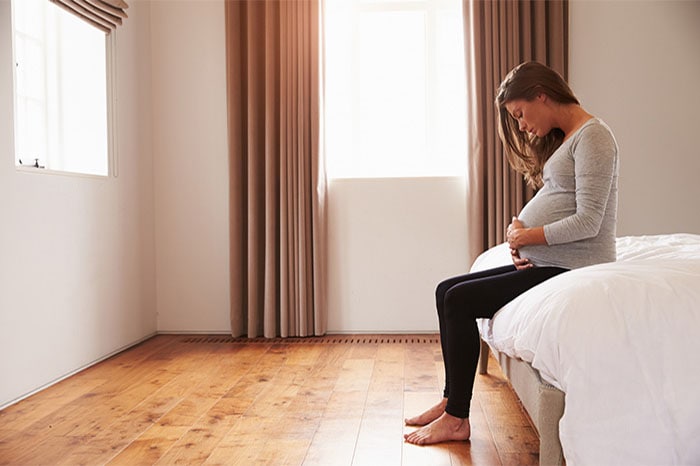Pregnant Women Report Taking Medicines for Anxiety and Other Mental Health Conditions

Many women need to take medicine to stay healthy during pregnancy, including medicine for mental health conditions. Two studies from the Centers for Disease Control and Prevention (CDC) found that a small number of women reported taking benzodiazepines or atypical antipsychotic medicines during pregnancy. Benzodiazepines are medicines used to treat anxiety and atypical antipsychotics are medicines used to treat schizophrenia, bipolar disorder, and other mental health conditions.
Women should discuss options for managing their mental health conditions with their doctors if or when they start planning for pregnancy.
Read the scientific article on use of benzodiazepine medicines during pregnancy.
Read the scientific article on use of atypical antipsychotic medicines during pregnancy.
Main Findings
- Fewer than 1 in 100 women took benzodiazepine or atypical antipsychotic medicines during pregnancy.
- Researchers found a small increased risk for some birth defects following use of these medicines during pregnancy. However, it is important to remember that the risk for birth defects is still quite low. Researchers don’t know if the risk for birth defects is linked to using benzodiazepines or atypical antipsychotics during pregnancy or to the underlying mental health conditions that these medicines are used to treat.
- Women shouldn’t start any new medicines or stop a current medicine without talking to a doctor. In some cases, avoiding or stopping a medicine during pregnancy may be more harmful than taking that medicine. Women should discuss options for managing their mental health conditions with their doctors if or when they start planning for pregnancy.
About This Study
- Researchers used data from the National Birth Defects Prevention Study, which collects information on babies born with birth defects, as well as babies born without birth defects, in order to study what might cause or prevent birth defects.
- In these studies, women who took benzodiazepine or atypical antipsychotic medicines were also more likely to have other factors that increase the chance of birth defects, like smoking during pregnancy.
- Researchers only studied a small number of children with birth defects, so there is still limited information on the safety of these medicines taken during pregnancy.
About Birth Defects
Birth defects are structural changes present at birth that can affect almost any part or parts of the body such as the heart, brain, or foot. Birth defects are common, costly, and critical conditions that affect 1 in 33 babies born in the United States.
Our Work
CDC’s National Center on Birth Defects and Developmental Disabilities (NCBDDD) is working to improve the health of women and babies through its Treating for Two: Safer Medication Use in Pregnancy program. Treating for Two works to understand the safety or risk of using certain medicines during pregnancy. Visit www.cdc.gov/treatingfortwo to learn more about our work in this area.
More Information
Scientific References
Tinker SC, Reefhuis J, Bitsko RH, Gilboa SM, Mitchell AA, Tran EL, Werler MM, Broussard CS, and the National Birth Defects Prevention Study. Use of benzodiazepine medications during pregnancy and potential risk for birth defects, National Birth Defects Prevention Study, 1997-2011. Birth Defects Research. 2019; 111(10): 613-620.
Anderson KN, Ailes EC, Lind JN, Broussard CS, Bitsko RH, Friedman JM, Bobo WV, Reefhuis J, Tinker SC, and the National Birth Defects Prevention Study. Atypical Antipsychotic Use during Pregnancy and Birth Defect Risk: National Birth Defects Prevention Study, 1997–2011. Schizophrenia Research. 2020 Jan 1;215:81-8.